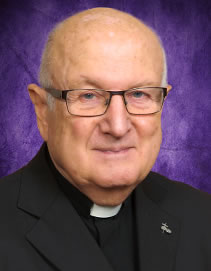
From the Director
Thanksgiving, my favorite American holiday, will arrive on November 25 this year.
Recently I came across a list of ten things to be grateful for. At first glance they didn’t seem too appealing: early wakeups, housecleaning, laundry, dishes to wash, crumbs on the floor, grocery shopping, toilets to clean, noise, kids’ endless questions, and tiredness. Somehow, I am guessing the list was composed by a harried mom, but I am sure there are dads out there who share some or all of these. Tell me I am right, dads.
Each of these complaints, however, has a silver lining: early wakeups can mean there are children to love. Cleaning the house means you have a safe place to live. Laundry implies clothes to wear. Dishes mean food to eat. Those pesky crumbs on the floor can be a sign of family meals. Carrying groceries home means you were able to buy them. Even toilets to clean are a sure sign of indoor plumbing! A noisy house means you have people in your life. Kids with endless questions are growing intellectually. And when you go to bed feeling sore and tired, at least you are still alive.
These last two years have been difficult for everyone: the loss of people we knew who died, the virus mutating, the mask wearing, the isolation, price inflation. There are not many silver linings on that list.
But yet, as we in the United States move closer to Thanksgiving weekend, we do have plenty of scope to offer prayers of thanks. But at the same time, our concern should extend beyond our own domestic preoccupations. The virus that hit our country so hard and so quickly last year has not disappeared. Those little round critters have more recently moved on to other countries with less medical infrastructure and fewer ways to help members of the public maintain their health.
I think one of the silliest things one person can say to another is, “your half of the boat is sinking.” But in one sense, that is the way we have been trying to run our world for the last few centuries.
People with access to the most advanced vaccines have not tended to care much about how the poor are going to access them. Pope Francis has pressed for global equity regarding COVID-19 vaccines, asking countries and companies to temporarily lift the property rights they hold to speed up distribution. Lamenting what he called the “virus of individualism,” Pope Francis argued it doesn’t lead to freedom or equality but indifference to the suffering of others.
Lamenting what he called the “virus of individualism,” Pope Francis argued it doesn’t lead to freedom or equality but indifference to the suffering of others.
Much like the coronavirus that has reshaped many industries throughout the world, Pope Francis argued the virus of individualism has many variants. “A variant of this virus is closed nationalism, which prevents, for example, an internationalism of vaccines,” the Pope said, in the wake of a decision by the Biden administration to waive intellectual property rights for the COVID-19 vaccines.
Likewise, people in areas not suffering the worst effects of climate change have not shown sufficient concern about the carbon being pumped into the atmosphere.
In Laudato si’, Pope Francis is clear about the connection between the health of the natural world and the health of its people. “The climate is a common good, belonging to all and meant for all. At the global level, it is a complex system linked to many of the essential conditions for human life.” He calls for a rethinking of our relationship with technology, remarking that: “We have to accept that technological products are not neutral, for they create a framework which ends up conditioning lifestyles and shaping social possibilities along the lines dictated by the interests of certain powerful groups.”
We can be grateful for so much, but there is much work to be done in the messy house that is our world.